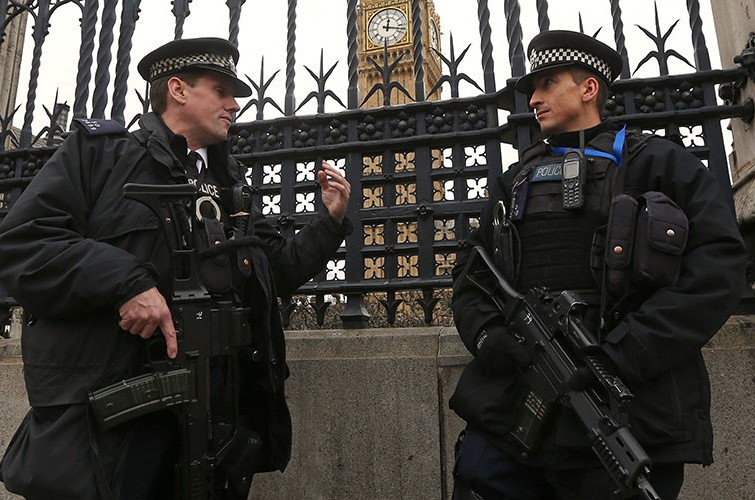Reuters photo
By
Hazel Speed
Considering world events, where terrorists have utilised various vehicles as their weapon of choice, and the dreadful loss of life and injury of innocent people, especially targeting Police in particular (in France and London in the past few weeks), it is inevitable that the UK Police have now put in place a ‘shoot to kill’ policy as a deterrent to preclude a worse scenario of outcome.
Apparently, the risk of stray bullets was previously a factor which restrained that kind of policy, where Police may have inadvertently injured or killed people nearby the pertinent location and ongoing movement.
Now we learn that Police in the UK have bullets which are capable of penetrating any type of vehicle, the obvious key intention to incapacitate/kill the driver instantly, thereby saving the lives of those who would otherwise be the intended victims of the terrorist(s).
What I wonder, however, is if the ‘powers that be’ have considered a scenario whereby a civilian, or even an off-duty Police Officer, is close enough to the commencement of an incident and decides on a split second of consideration to intervene, perhaps struggling with the culprit, that a contingency thereby may arise where the ‘have a go’ person is either thought to be a second terrorist, or unavoidably is shot when Police are aiming at the terrorist, but such a struggle in the vehicle means either the wrong person is shot and/or killed, or all the occupants of such a vehicle, and one day may also include hostage passengers.
One retort or warning to the general public made by the Police might be ‘not to get involved’ and leave it up to the Police and/or Security Forces.
However, suppose anyone viewing an opportunity to stop a terrorist act in place does nothing, when they feel they may save lives whilst waiting for help to arrive, decides to do nothing, then witnesses people being killed, they will have that on their conscience for the rest of their lives.
One wonders, in such countries as France, where they have ‘The Good Samaritan Act’ (which has probably not yet been legally tested as to whether it is applicable in the circumstances outlined herein), if it may be the case that a witness to the initiation of a terrorist act (whether a vehicle is involved or not), could one day be prosecuted, either by the Authorities, or via a private prosecution, for non-intervention.
I feel there should be some insurance fund, created by the Government, for third party death or injuries regarding victims of terrorists (including benefits for victims’ families). There may of course already be some type of relevant facility in place and/or being considered, albeit not exactly as suggested herein.
Nobody knows what they would, or wouldn’t do in any dire situation, as outlined above, until one is actually within this kind of scenario, so it remains an issue that should be quantified within overall strategies, as one day something like this may well happen – sooner, rather than later – sad to say.
Hazel Speed
Photo (c) Hazel Speed – used by kind permision to Tuck Magazine



No Comments Yet!
You can be first to comment this post!